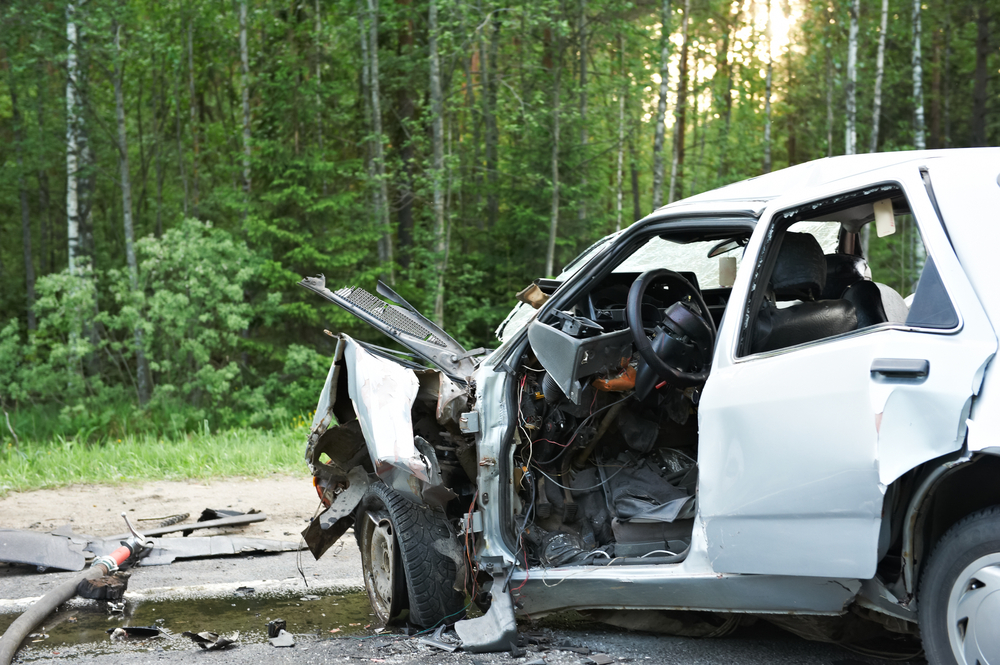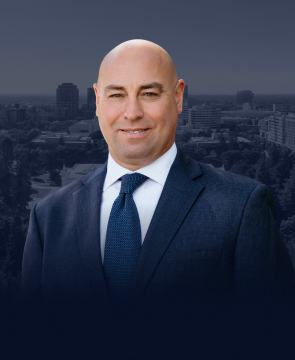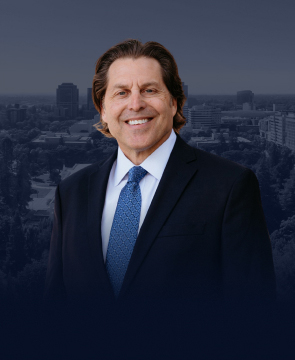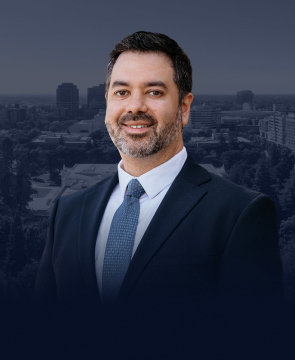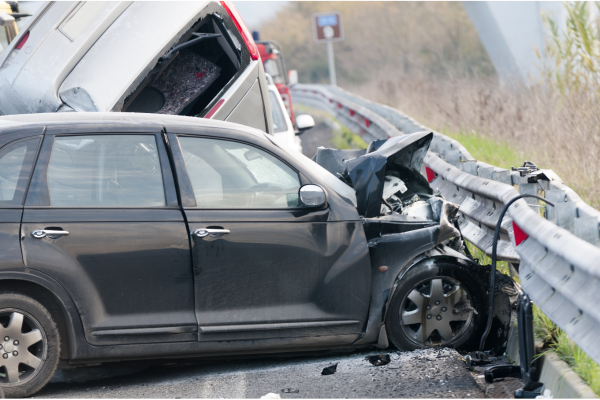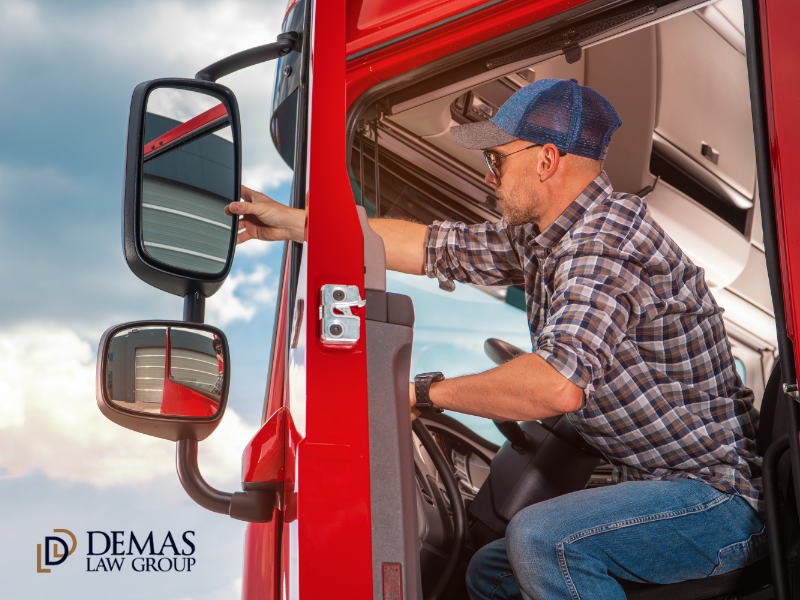Among the many ways that a car accident in California can severely impact your finances is the damage to your vehicle in the accident. In many cases, the amount of money you can get from your insurance company to repair your vehicle may not be enough to fully cover the cost of repairs.
When this happens, you might be better off if your car were declared a total loss, in which case you would likely get money to purchase a replacement car. In other cases, a driver does not want their car “totaled” after an accident because they’re attached to the vehicle and would prefer to repair it rather than see it sold for scrap. Sometimes they’re afraid the payout won’t be enough to buy another car that is as good as the one they had.
The formula that determines whether your car is likely to be totaled is known as the Total Loss Formula or Total Loss Law. If you have questions about California’s Total Loss Formula, the attorneys at Demas Law Group can help you pursue the outcome you want. We’ve been helping California residents with car accident issues for more than 25 years.
Get a free case review today by calling our office in Sacramento or by filling out the form on our contact page
What Is the California Total Loss Law?
When you’re involved in a car accident, one of the calculations your insurance company has to make is whether they’re better off paying to repair your vehicle compared to paying you the pre-accident value of the car.
When they’re making this assessment, the insurance company will be looking at several factors. These include:
- The actual cash value of your vehicle before it was damaged, based on its age, mileage, general condition, its options, and features, etc.
- The cost to repair the vehicle and bring it back to working order.
- The salvage value of the vehicle. This can vary greatly depending on how badly damaged your vehicle is. Cars that are badly damaged in an accident may not have much value beyond what the insurance company can get for the vehicle’s scrap metal, but cars that are not as badly damaged may be more valuable because certain parts can be salvaged and sold.
Another key element that an insurance company will consider in car accident cases is the diminished value of the vehicle as a result of the accident, which affects the vehicle’s actual cash value. There are three broad categories of diminished value that a vehicle can sustain, which are:
- Immediate diminished value – This is the difference between the vehicle’s value right before the accident and its value right after the accident.
- Inherent diminished value – This is the reduced value of the vehicle as a result of having had major repairs done. Even if the vehicle is repaired and is working normally, there’s a stigma against vehicles that have had substantial work done.
- Repair-related diminished value – This is the reduced value that occurs when a vehicle is fixed after an accident, but the repairs may not be totally optimal. These “less than optimal” repairs can make it more difficult to sell a vehicle even if it’s working properly.
How Is a Total Loss Determined?
There’s a fairly simple formula that insurance companies use to determine whether a vehicle is a total loss or not. It works like this: If the total cost of repairs plus the salvage value of the vehicle is greater than the vehicle’s actual cash value, it’s considered a total loss. In mathematical terms, a vehicle is a total loss if Cost of Repairs + Salvage Value ≥ Actual Cash Value.
For example, let’s say your insurance company determines the actual cash value of your car is about $10,000. If you need about $8,000 in repairs after an accident and the salvage value is about $4,000, the insurance company will likely deem the vehicle a total loss because the sum of the repairs needed, together with the salvage value (in this case, about $12,000), is greater than the $10,000 value of the car.
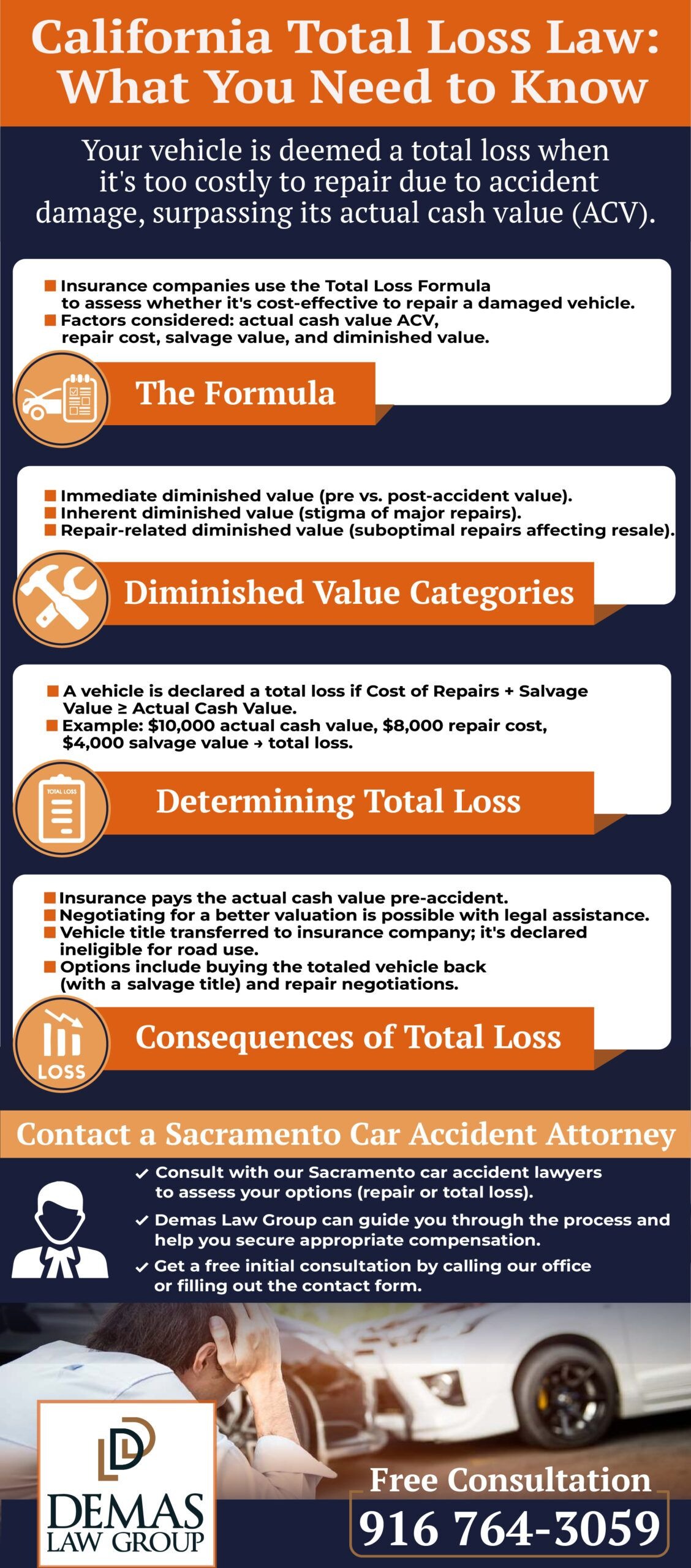
What Happens If Your Car Is a Total Loss?
If the insurance company says that your vehicle is a total loss after an accident, they will pay you what they determine to be the actual cash value of the vehicle pre-accident. You can then use that money to purchase another vehicle for yourself if you choose.
As with virtually all interactions with insurance companies, their first offer is likely not their best. The insurance company may not take into consideration factors like the condition of the vehicle, special features, maintenance history, and others. They may make a lowball offer in hopes you will take it and move on.
However, you aren’t required to take the insurance company’s offer without questioning it. An attorney can help you negotiate for a better valuation of your car’s value.
After your insurance company has determined your vehicle is a total loss, you will need to transfer the title to them so they can take possession and sell the vehicle. They will get a Salvage Certificate from the state Department of Vehicles.
This certificate declares that the owner has deemed the vehicle to be a total loss and can only be used for parts or for scrap metal. Once a Salvage Certificate has been issued, a vehicle cannot be retitled, meaning it is ineligible for use on the roads.
If you wish to repair your vehicle even after it’s been deemed a total loss, you will have an uphill battle against your insurance company. The insurance company is unlikely to budge on their assessment, and they’re unlikely to give you the money to repair the vehicle if they’ve deemed it a total loss.
In some situations, you may be able to buy your totaled vehicle – with a salvage title – back from the insurance company. This again raises a question about the value of the vehicle in its damaged state. An attorney can also help you with these negotiations.
Contact a Sacramento Car Accident Attorney for Help
Before deciding whether to get your vehicle repaired after an accident or attempt to get it declared a total loss, you’ll want to speak to a Sacramento car accident lawyer. Demas Law Group can outline the different economic repercussions of trying to get your vehicle repaired versus having it declared a total loss.
Regardless of which option you prefer, we can walk you through the process and help you get the money you deserve to get your vehicle repaired or replaced. Get a free initial consultation by calling our office or filling out the form on our contact page.
